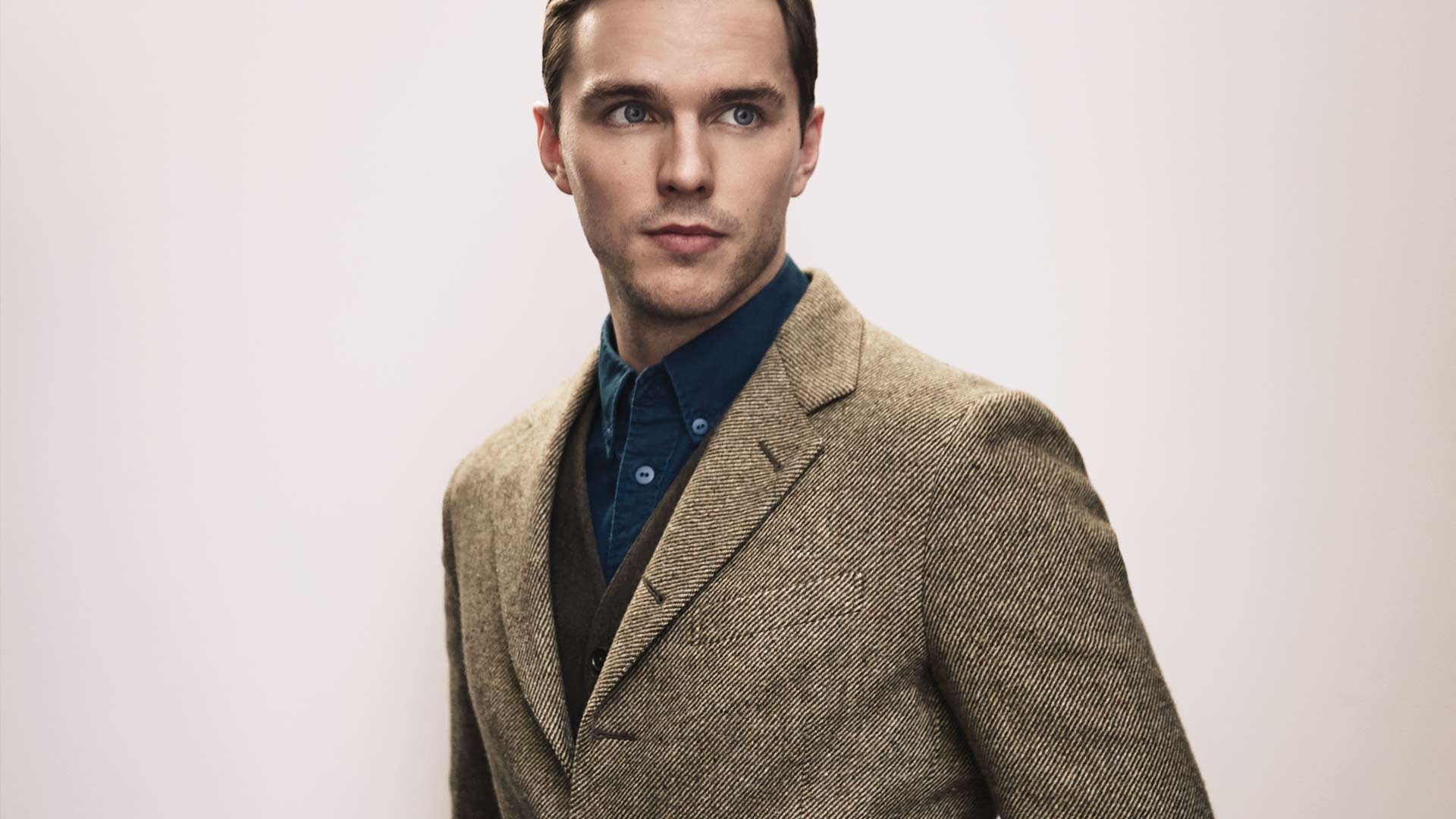Can’t Stop Hoult
It’s a rare occasion for two films containing the same actor in a lead role to get released on the same day, but that’s exactly what is going to happen next month. English actor, Nicholas Hoult has been the talk of the town as he returns back as Beast in the latest X Men film, Dark Phoenix and J.R.R. Tolkien in Tolkien. Oh, did I mention that both films are going to be released on June the 6th?
Nicholas Hoult is an actor that oozes commitment. He started from a young age, getting his first big acting break in 1996, at age seven, in Intimate Relations – his character, the cheeky Bobby, who melted the hearts of millions in the dark comedy, starring Julie Walters. His next biggest role was the shy, socially-awkward Marcus Brewer in Chris Weitz’s 2002, About A Boy.
“Suddenly I realized two people isn’t enough. You need backup. If you’re only two people, and someone drops off the edge, then you’re on your own. Two isn’t a large enough number. You need three at least.” That was Marcus weighing the pro’s and con’s of his new role-model, Will Freeman (Hugh Grant) dating his heavily depressed mum (Toni Collette). It seemed that it was that role that truly created Hoult as the next big thing to come out of England in the early 2000’s. But isn’t it funny how, so many years later, Hoult is using that literally in his work.
One role just doesn’t seem enough for Hoult and they always seem to be on different levels of maturity. From little Marcus in About A Boy, to the rebellious anti-hero, Tony Stonem in 2007 cult-fave, Skins; Beast in X Men to Robert Harley in The Favourite. He’s a man of multiple talents and can play just about any character that’s thrown at him.
We sat down with Hoult and had a word about his upcoming projects.
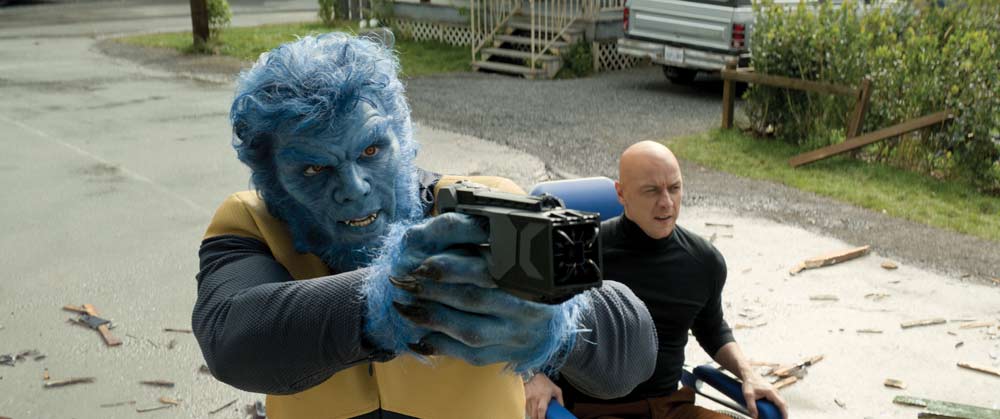
Dark Phoenix moves the story on to the 1990s. Where do we find Hank?
At the beginning of the movie, we largely find Hank where we left him at the end of the last one. He still lives at Xavier’s School for Gifted Youngsters; he’s still a professor there and he’s one of the more senior figures. I’d say he’s slightly more of an equal to Charles now. In the last movie, he’d just begun teaching, and the one before that, he was more his carer/enabler and a student before that. Simon Kinberg gave me this beautiful, emotional place to go with the character, to play elements of Hank and Beast that we haven’t seen before.
Hank can always be a bit of a check and a balance on Charles. Can he say things to him others can’t?
Jennifer’s (Lawrence) Raven can be more combative against him; she’ll say the things that come from a very different place. Hank genuinely wants the best for him, and he’s cared for him for a long time. But in this movie, it gets pushed too far and he starts to see elements of Charles’ personality he doesn’t agree with and the approach doesn’t work for him. Hank then takes a more extreme side of things.
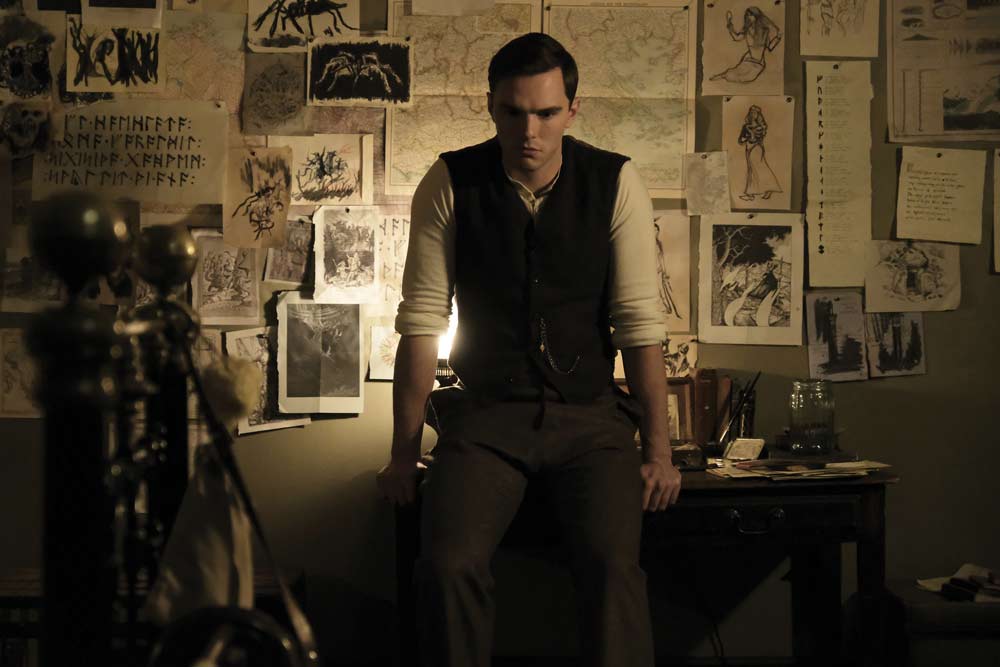
Has Hank’s style changed at all?
Hank’s always had his own special style. He’s always looked older than his years, very much the professor look. But his style does slightly change in this one. I didn’t get too many ‘90s nods though… he’s no fashionista!
The cast got back together again. Was it still fun? Still like a bunch of school kids?
No BB gun fights! We were very sensible this time, very focused after reading this script and seeing what the movie was about, I feel like people really got their game on and concentrated on what their characters were doing and the story. We still had fun, it was still great to catch up, but it wasn’t quite as chaotic as some of the other films! We were so enthused by what Simon was pitching to us and his commitment to it. When that’s the environment that’s being created, that’s something that you want to be involved with.
How was Jessica Chastain as the new cast member?
To be honest, those parts of the movie my character isn’t as involved with, but we’ve been very fortunate in terms of the track record of having brilliant cast members. From Ian McKellen, Patrick Stewart, and Hugh Jackman to having Oscar Isaac or Kevin Bacon, and now Jessica, these characters are built wonderfully and then brought to life by actors who add dimension. To have her as one of the main threats of the movie and to have her bring her talent to it… We’re very lucky.
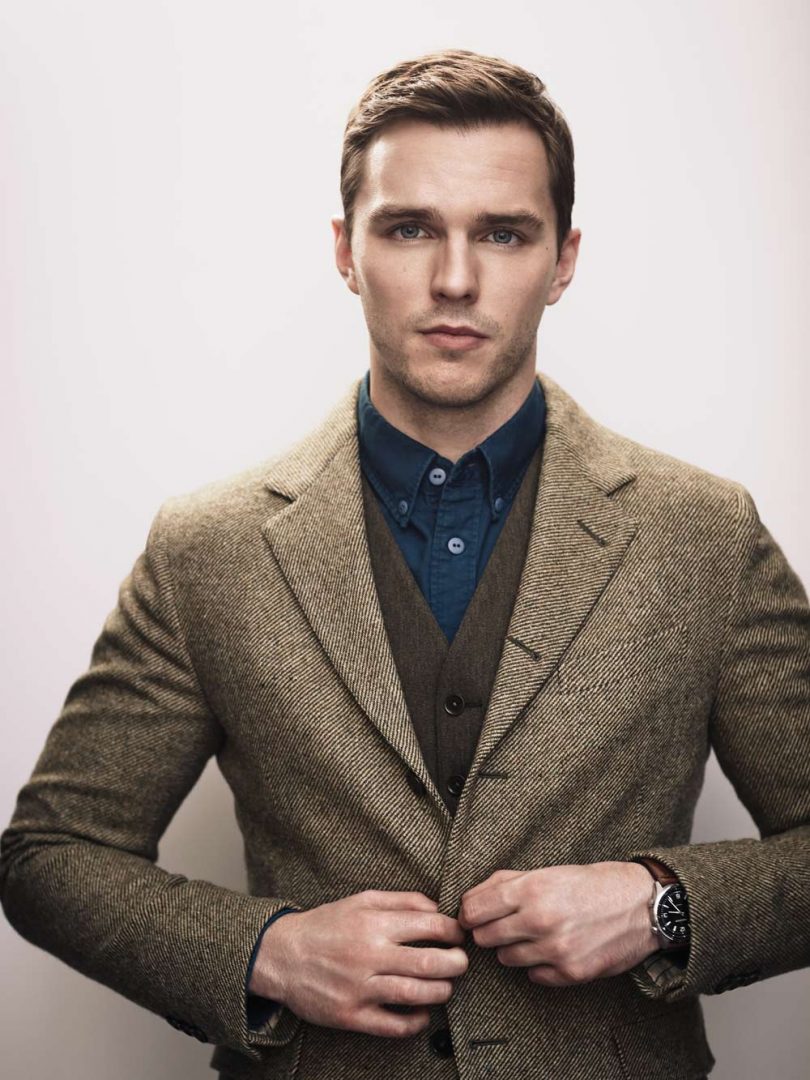
You’re back in the Beast make-up. Does it get easier?
It’s the same make-up from the last time. The team is faster and more talented than ever, and they’re exploring some new designs with it as well, in terms of the paint on top of the make-up, but it’s basically the same.
Did anyone pitch the CG/performance capture approach this time?
There probably is a version of making the character that way, but there’s something about the make-up and having the real, tactile character that’s nice. It’s this odd thing that when you see a movie from 10, 15 years ago, and CG that was great then, it doesn’t look so good now. I think that’s what we’d be seeing with this character – if he’d been CG through these movies, you’d look back to, say, First Class and think it looks completely different. The rate of that technological development and that side of graphics is that, yes, they could do it, but for me playing him, it’s great to have the real weight and movement of the make-up. And for the other people on set, there’s already so much which is imagined that at least when I’m in a scene as Beast, they see me in the make-up and there’s something to react to.
Is there a scene you’re excited for people to see?
There were certainly scenes that I was excited to play, and therefore hopefully if they turn out the way I imagine, they’ll be exciting for people to see! But for me, it’s also one of those things where there’s a lot that we have to imagine on set, so to actually sit in a cinema and see the finished thing is a treat for us as well. You’re not there every day, you don’t see everything going on and big chunks are green screen, so I’m intrigued to see how it all comes together. But if the scenes that I loved playing turn out as I hope, then they should be great.
Are you ever tempted to make flying noises at the controls of the X-Jet?
We did a little behind-the-scenes thing that I don’t know will ever be released, but we did a spoof thing that was “Learning to Fly With Beast”, a mockumentary. I hope they release it because it was pretty funny.
What, for you, is the overriding theme of the movie this time?
It touches on the X-Men and how they differ from other superheroes and are treated by society. They’ve always got a much larger thing to say than what might first meet the eye. This one goes into what people do to protect others that ultimately does them more harm than good. It deals with the family environment and how people process and deal with things and rally around each other. And then on the other side you have this element of the X-Men being accepted at the beginning of the movie, they have fans and they are heroes, and how quickly that can change. You see it with everyone; the media seems to love building up a hero and then shooting them down as quickly as possible, we see these stories play out in front of our eyes and how it affects people’s lives.
Moving onto your other project, Before you started, how much did you know about Tolkien?
Not a whole lot (laughs). I had read ‘The Lord of the Rings’. I had grown up watching the films. ‘The Hobbit’ was one of the first books I was given by the Weitz brothers making About A Boy. I’d read his work but I didn’t know much about the man. To be honest with you, I’d been pronouncing his name wrong. Everyone says Tol-kin but it’s pronounced Tol-keen which I found out watching a documentary narrated by Judi Dench.
What’s been the toughest aspect of playing him?
The most difficult part of playing any real person, especially such a renowned person who people hold dearly to their heart, is trying is to get over that. I have done it before and you can feel so much pressure. You want to do the person so much justice that eventually that can be stifling. So it’s one of those things where you take it all on board than let it go and just try and tell the right story. That’s an oddly difficult thing: accepting the weight and the responsibility but not letting it overwhelm you.

So how did you approach it?
I think it is really trying to capture an essence of someone. Because I knew so little about him, all of it came as a surprise. And then, working with Dome, it is trying to get into the psychology of someone who was orphaned at such a specific age (Tolkien was orphaned aged 12). It’s someone who is gaining confidence and becoming a man but also hasn’t got that in-built self assurance in any way. He’s also struggling with almost being on the cusp of a world he is never part of. These other boys [at his school] were born into wealthy families, guaranteed to go to great universities and will have great lives no matter what. He is rolling with them but Tolkien is not quite cut from the same cloth so he has to make his own way.
His relationship with Edith Bratt is central to the film. What did she give to him?
I think she gave him a rock, a support. She was also a very strong character. She was a few years older than him. I imagine she was a little bit more savvy and grown up and better equipped. I think she gave him an emotional support that was very different from what he was used to.
How is it sharing scenes with Lily Collins?
She’s fantastic. She’s such a great actress and she has that wonderful ability to play a character who is strong but at the same time wounded and human in such an honest fashion. It is just lovely to be in with her scenes. She’s an old school movie star from the ‘30s, it’s really beautiful to watch. I think she feels quite British at heart. It makes the job a lot easier when you are playing a love story with someone you really like and is a wonderful actress. It’s been a pleasure to see what she brought into the script to add to the character.
A big part of this film concerns young students having fun.
Certainly there’s parts of it that remind people of Dead Poet’s Society. All of these young characters pushing and encouraging each other to create. Because of the era, they’re maybe repressed by authority figures or emotionally so there’s elements of watching young men grow up and try and find their place in the world. It’s also a lot of fun. I heard one of the characters describe it as very “banterous”. It’s that thing boys always have with each other — just taking the piss basically.
The story follows Tolkien into the trenches of WWI. How did you find filming that?
I really loved it. There’s something about when filming gets tough that I really thrive on. It’s wonderful doing scenes in rooms trying to find the emotional heart of scenes. But there’s something really nice about being out there in the elements, struggling and feeling that you are really in it. Memory is a funny thing. When I think back, it was two weeks of freezing, running around in mud and struggling and just being exhausted. But now I think that was really rewarding.
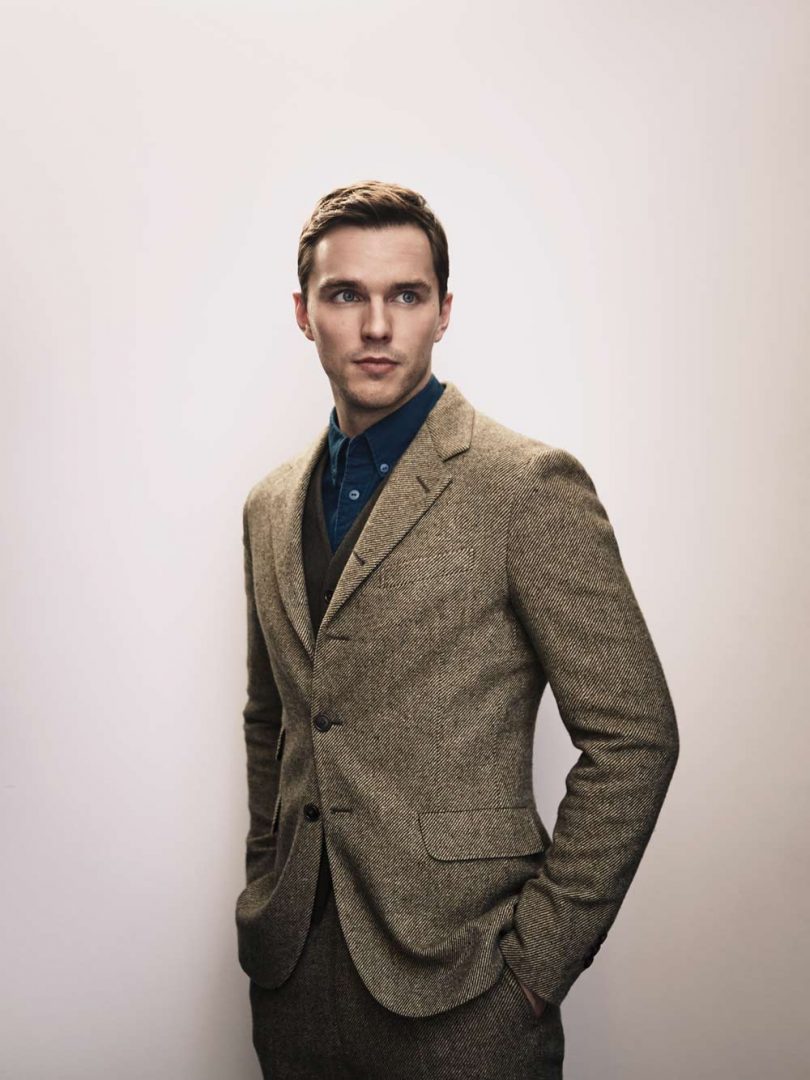
What does the film explore Tolkien’s WWI experience?
[We show that] Tolkien is quite feverish with trench fever. He is having these visions and coming in and out of sanity. It sets up an idea for being able to create these worlds and the friendships or fellowships in the novel through the people he lost and the things he powered through. I think it’s going to give a very different side to the film. You are used to this cleanliness of Tolkien’s life at Oxford and then you are suddenly transported to this muddy battlefield and chaos. You never see him writing the actual stories. That’s why this story is nice because you essentially remove the fact of what he went onto do. It’s the story of a young author finding love and friendship and losing it and then beginning to dedicate that work with his book.
Was making the film fun?
It’s very different being a lead in a movie to a supporting character in a movie. This weird pressure comes over you. But if you can kind of let that go, then it’s fun coming to work with your friends doing a job you love. Then you just relax and enjoy it. It feels good when a scene is on a page and you manage to elevate it perhaps to something better in the moment.
How would you sum up your Tolkien experience?
It was beautiful to get time to try and understand him. The one thing that really moved me was the friendships and loving relationships he created that he invested in from such a young age. As actors, there are different things that drive us throughout our careers, what we are inspired by and focusing on. Tolkien’s reasons are so pure and powerful. It was his love of language and his love of these people that fired him on to create these incredible works of art.
X-Men: Dark Phoenix and Tolkien are both in cinemas June 6.

